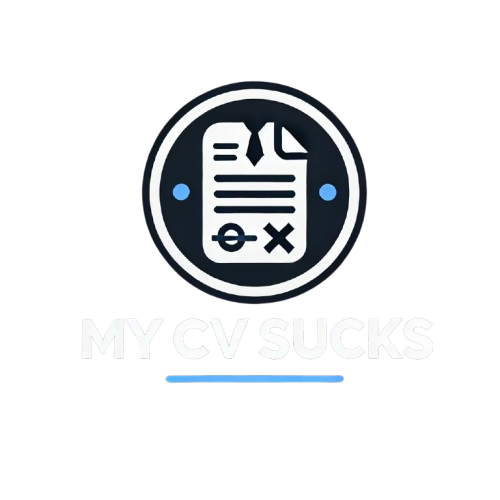interview tips
Ace Your Interview: How to Prepare for Behavioral Questions About Team Conflicts in the UK

Ace Your Interview: How to Prepare for Behavioral Questions About Team Conflicts in the UK
Navigating the UK job market can be challenging, and the interview stage is often the biggest hurdle. One area that consistently trips up candidates is behavioural interview questions, particularly those focusing on how you've handled team conflicts. Knowing how to prepare for a behavioral interview about team conflicts is crucial for demonstrating your teamwork and conflict resolution skills, essential attributes for success in most UK workplaces. This guide will provide you with the tools and strategies you need to confidently address these questions and make a positive impression on your potential employer.
Understanding Behavioural Interview Questions in the UK
Behavioural interview questions in the UK, like in many other countries, are designed to assess how you've handled situations in the past. They're based on the principle that past behaviour is the best predictor of future performance. When asked about team conflicts, the interviewer wants to understand your approach to resolving disagreements, your communication style, and your ability to maintain positive working relationships, even under pressure.
Common Team Conflict Scenarios in UK Workplaces
Before we delve into preparation, let's examine some common team conflict scenarios you might encounter in a UK-based interview:
- Personality clashes: Disagreements stemming from differing working styles or personalities.
- Communication breakdowns: Misunderstandings or lack of clear communication leading to conflict.
- Resource allocation disputes: Conflicts over limited resources, such as budget, time, or equipment.
- Differing opinions on project approaches: Disagreements about the best way to approach a project or task.
- Unclear roles and responsibilities: Conflicts arising from overlapping or undefined roles within a team.
How to Prepare for a Behavioural Interview About Team Conflicts
Preparing for these questions requires a structured approach. Here's a step-by-step guide:
1. Reflect on Past Experiences
Think back to your previous roles and identify situations where you encountered team conflicts. Focus on situations where you played a significant role in resolving the conflict or where your actions had a noticeable impact on the outcome. Remember specific details:
- The context: Describe the situation, the team involved, and the nature of the conflict.
- Your role: Explain your involvement and the actions you took.
- The outcome: Detail the resolution and the impact of your actions.
- What you learned: Reflect on what you learned from the experience and how it shaped your approach to future conflicts.
2. Use the STAR Method
The STAR method is a powerful framework for structuring your answers to behavioural interview questions. It stands for:
- Situation: Describe the situation concisely.
- Task: Explain your role and the task at hand.
- Action: Detail the specific actions you took to address the conflict.
- Result: Explain the outcome of your actions and what you learned.
Using the STAR method will ensure your answers are clear, concise, and impactful.
3. Practice Your Answers
Practicing your answers beforehand is essential. This will help you feel more confident and articulate during the actual interview. Try practicing in front of a mirror or with a friend or family member. Ask them for feedback on your delivery and the clarity of your answers.
4. Highlight Your Strengths
Focus on showcasing your strengths in conflict resolution. These might include:
- Active listening: Demonstrating your ability to understand different perspectives.
- Empathy: Showing understanding and compassion for others’ feelings.
- Effective communication: Clearly articulating your views and actively seeking to understand others.
- Compromise and negotiation: Finding mutually acceptable solutions.
- Problem-solving: Identifying the root cause of the conflict and developing effective solutions.
5. Prepare Questions to Ask
Asking thoughtful questions demonstrates your engagement and interest in the role. Consider asking questions such as:
- "How does your team handle conflicts?"
- "What are the company's values regarding teamwork and collaboration?"
- "What are some of the challenges your team faces?"
By asking these questions you can showcase your proactive approach to teamwork and conflict resolution. Remember to tailor your questions to the specific company and role.
Leveraging Resources for Success
Feeling overwhelmed? Don't worry! Many resources are available to help you prepare. For example, if your CV isn't highlighting your skills effectively, you can use our free ATS resume analysis tool at https://www.mycvsucks.com to identify areas for improvement. A strong CV is the first step to landing that interview!
Mastering the Art of Conflict Resolution in the UK Workplace
Successfully navigating behavioural interview questions about team conflicts is a key ingredient in securing a job offer in the competitive UK job market. By following these steps, you’ll be well-prepared to demonstrate your skills and capabilities to potential employers. Remember to be honest, reflective, and focus on showcasing your strengths in conflict resolution.
Remember, your ability to handle team conflicts effectively is a valuable asset. Demonstrate this effectively, and you'll significantly increase your chances of success. Don't let this crucial aspect of the interview process hold you back!
Ready to Take the Next Step?
Get your CV analysed for FREE today using our powerful ATS resume analysis tool at https://www.mycvsucks.com and ensure your application stands out from the crowd!
Ready to Build a Winning CV?
Take the next step in your career. Register today and get 10 free tokens to start optimizing your resume instantly.
